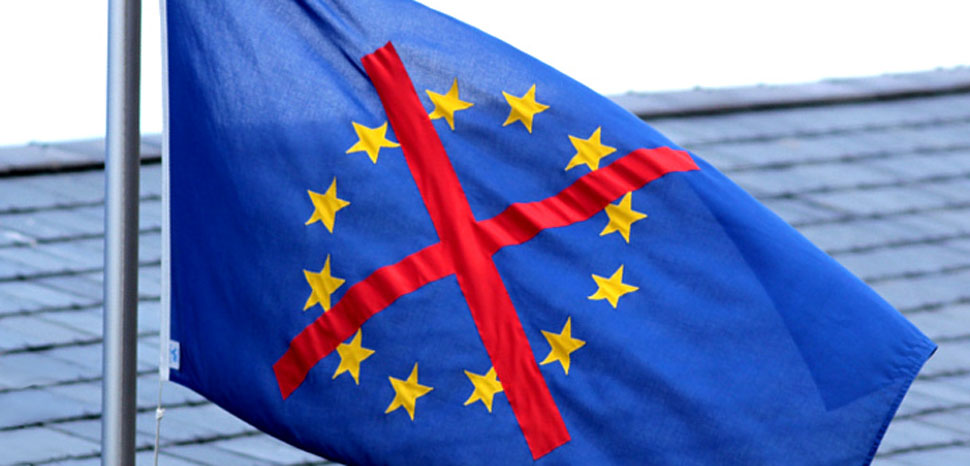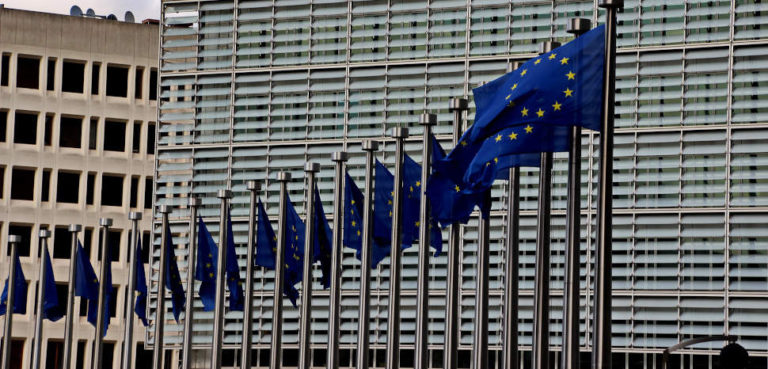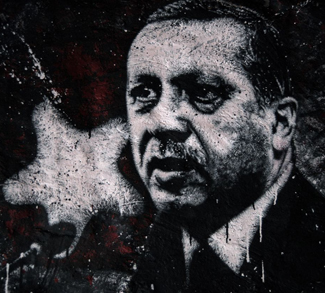Euroscepticism is a multifaceted phenomenon that has increasingly been the subject of analysis by scholars of European integration since the 1990s. The European Union has faced a multitude of serious challenges in the past, such as the European migrant crisis, which peaked in 2015, as well as the fall-outs from the financial crisis of 2007-2008, that have negatively affected public perceptions of this political and economic union. However, the COVID-19 pandemic appears almost unique in terms of the likelihood of entrenching Eurosceptic sentiments through most of 2021.
One of the important potential sources of Euroscepticism is the economic performance of the nation-states that are part of the EU. A worsening of the leading economic indicators, or at least a perception that there is a trend in that direction, is likely to induce less favorable appraisals of the EU. In that regard, while the impacts of the pandemic have been uneven across countries, all of them have had to contend with severe output losses and a reduced economic growth. Furthermore, recent research on the economic aspects of Euroscepticism suggests that the economic and fiscal conditions in other EU countries may raise concerns among the domestic public about negative spillovers if the national economy appears to be doing well, thus reducing the trust in the EU and leading to elevated levels of Euroscepticism.
Few EU countries, among them Latvia and Slovakia, appear to have remained relatively unscathed from an economic standpoint while also dealing well with the medical aspects of the crisis. Even if COVID-19 is temporarily brought under control at a certain location, the nature of the virus’ transmission presupposes that any new cases subsequently introduced from abroad that are not quarantined and properly traced may quickly bring about exponential spread. Such a scenario would in turn negatively affect the economic outlook because of the need for the imposition of new restrictions on businesses and the corresponding changes in the behavior of the consumers. In a sense, the belief that any victory proclaimed by the citizens of those nation-states who have been model pupils in handling COVID-19 would likely be short-lived (due to the interconnected nature of the EU) could invite Eurosceptic actors to fill the political void.
Another reliable predictor of Euroscepticism appears to be the degree to which citizens believe in their own national governments. This confidence expressed in the national authorities tends to be extended from domestic political contexts to the EU level. Policies in response to COVID-19 were not able to shield the populations of the EU states from serious health-related, economic, and psychological repercussions. This has resulted in a reduced trust in many national leaders, including Emmanuel Macron in France and Pedro Sánchez in Spain (notwithstanding the initial increase in their popularity in March 2020, attributable to the rally-round-the-flag effect in the days when the pandemic began unfolding), even in countries such as Sweden where authorities as a rule are regarded as trustworthy. Thus, with national governments not being in a good position to protect their citizens against insecurity, and EU officials themselves facing criticism for not being especially proactive in combating COVID-19, the EU will have to pay a legitimacy price in terms of its perceived competency to deliver crucial public goods. Given that most EU nation-states will likely not have the luxury to significantly relax the vast majority of pandemic-related measures at least for a few more months, there will probably be a dearth of opportunities for offsetting the negative attributes projected onto the EU, at least until mass vaccination has dramatically altered the epidemiological situation in individual countries.
Another salient aspect with regard to Euroscepticism concerns the reality that it is to a larger degree the prerogative of parties on the right or far-right of the political spectrum, especially if there are citizen grievances with the EU project that go beyond narrow economic concerns. In relation to the COVID-19 pandemic, the emerging consensus among epidemiologists and public health experts appears to be that a strict approach that borders on eliminationism (rather than half-hearted restrictions inviting a long-term coexistence with the virus) is the proper course of action from the standpoint of both the overall health picture and the economy. Unlike in the case of the Americas where leaders espousing right-wing populism such as Donald Trump and Jair Bolsonaro were sharply criticized for their actions in relation to the pandemic, to a large extent because of the lack of willingness to close many sectors of the national economies and their opposition to mask mandates, right-wing politicians in Europe have generally escaped the stigma of being in the anti-lockdown camp or lending an ear to the multitude of conspiracy theories surrounding COVID-19.
Hungary’s Prime Minister Viktor Orbán and Austria’s Chancellor Sebastian Kurz, to take two examples of prominent politicians with such leanings, have been more than willing to impose tight restrictions and stress the dangers of the virus. In fact, the country that was regarded as an outlier in the EU, Sweden, due to its no-lockdown approach (at least in terms of legal mandates), is governed by a red-green coalition that straddles the centre-left of the political spectrum. In the early phase of the health emergency one of the few dissenting political voices in the country that publicly questioned the apparently hands-off manner of dealing with the crisis, in particular the decision not to close the schools, were the right-wing Swedish Democrats. While the perception among many citizens that Trump and Bolsonaro downplayed the pandemic played a large part in the shrinking of their domestic support base and probably cost the former his November 2020 presidential reelection, right-wing voices in Europe who tend to be the main drivers of Eurosceptic currents have not come to be associated with neglectful responses to the health aspects of the crisis and ineffectual strategies of mitigation.
One additional issue of paramount importance that is bound to provide fertile grounds for Eurosceptic narratives concerns the EU’s exit plan for the crisis. The first steps that a government takes in tackling a national emergency are often more prone to misremembered in comparison to the measures adopted once there appears to be a clear end in sight and the crisis has entered its final stages. Recentism can be strong in the public mind, as demonstrated by the bounce in the personal ratings of frequently maligned UK Prime Minister Boris Johnson during the month of January 2021, which has been largely courtesy of the expediency and efficiency demonstrated by the UK in administering vaccine doses to its citizens. In contrast, in recent weeks the EU has come under serious scrutiny concerning the amount of available vaccines for vulnerable citizens and the slow pace of the vaccination campaign, drawing unfavorable comparisons to non-member states such as Serbia, the UK, and Israel. The European Commission’s public dispute with AstraZeneca pertaining to the supply of vaccines probably did little to alleviate the concerns of the European citizens that the EU officials are not really in the driving seat when it comes to paving the way for a return to pre-pandemic normalcy.
While COVID-19 may not have the markings of an existential crisis for the EU, from a theoretical standpoint it seems to tick virtually all the boxes when it comes to the potential for hardening Eurosceptic attitudes throughout the supranational community. The absence of a truly unified EU-level approach to the lock-downs, the quarantining of foreign arrivals, and a multitude of other pandemic mitigation measures set the tone for the divergent courses of action taken by the EU member states, which has ultimately resulted in COVID-19 continuing to dominate the national newspaper headlines. It remains to be seen whether the EU will be in a position to vindicate itself by demonstrating marked improvement with regard to the vaccine rollout over the coming months, though the reputational damage it has suffered will not be easy to repair.
The views expressed in this article are those of the authors alone and do not necessarily reflect those of Geopoliticalmonitor.com or any institutions with which the authors are associated.




